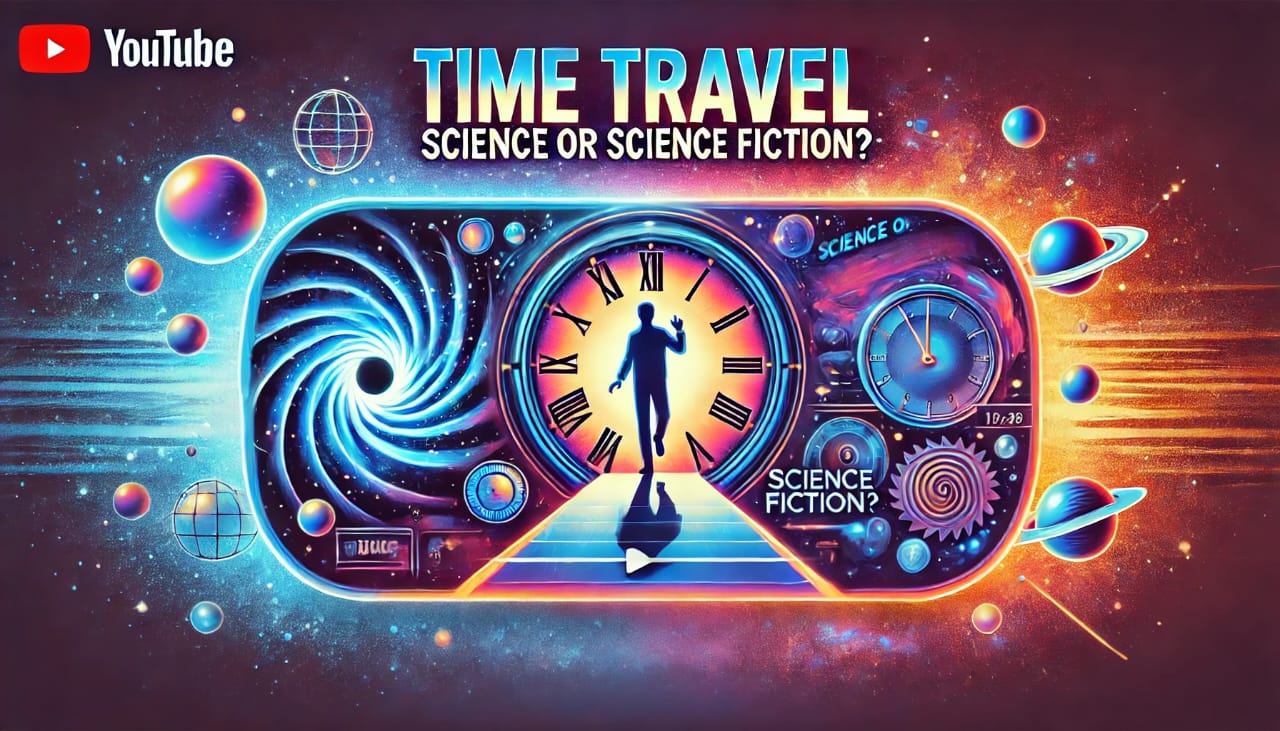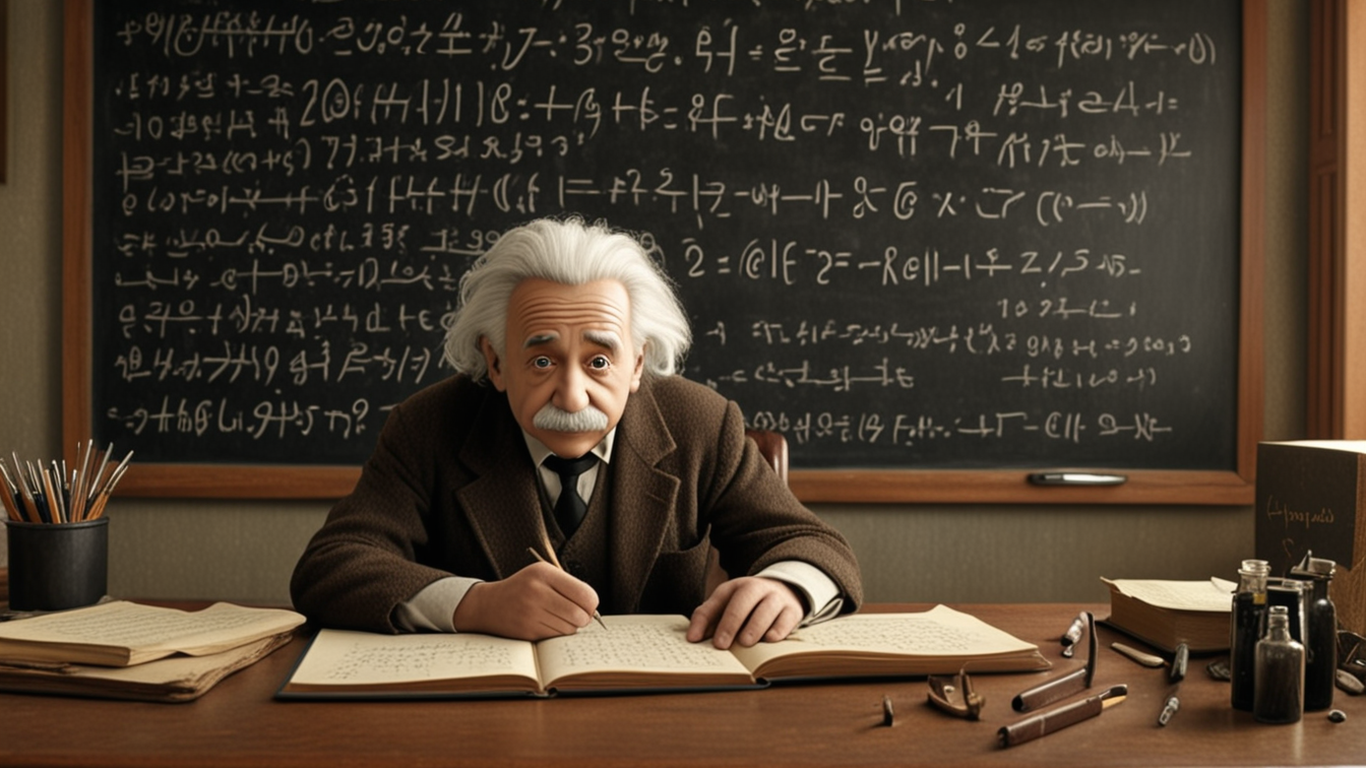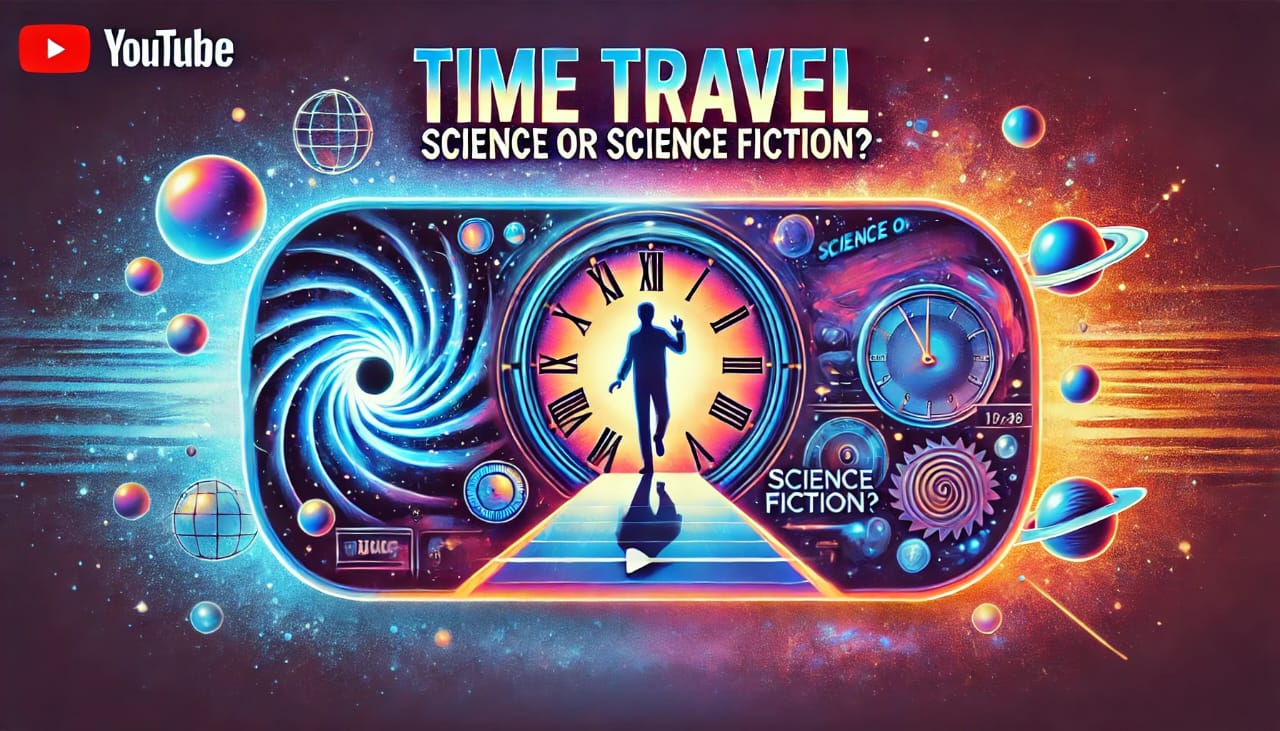Time Travel: Science or Science Fiction?

Time travel—the idea of moving through the past or future—has fascinated humans for centuries. But how much of it is real, and how much is just science fiction? Let’s explore the difference between fact and fiction.
The Scientific Basis of Time Travel

1. Einstein’s Relativity: A Real Possibility for Future Travel?
Albert Einstein’s Theory of Relativity (1905, 1915) provides the strongest scientific foundation for time travel.
Time Dilation: When an object moves close to the speed of light, time slows down for it relative to a stationary observer. For example, an astronaut traveling at near-light speed would age much slower than someone on Earth.
Gravitational Time Dilation: Time moves slower near massive gravitational fields like black holes. This concept was beautifully illustrated in the movie Interstellar, where one hour on a distant planet near a black hole was equivalent to seven years on Earth.

2. Wormholes: Shortcuts Through Time?
Physicist Kip Thorne proposed that wormholes—tunnels in spacetime—could theoretically allow travel between different points in time. However, no evidence of wormholes exists, and they are likely unstable, requiring exotic matter to remain open.

3. Time Travel Paradoxes and the Many-Worlds Theory
One of the biggest issues with time travel is the Grandfather Paradox—if you went back in time and prevented your grandparents from meeting, would you still exist?
A possible solution is the Many-Worlds Interpretation of quantum mechanics, where each time travel event creates a new parallel universe. This means you could travel back in time, but only to a different timeline, not your own.
Science Fiction vs. Reality

Can We Really Travel Through Time?
Forward time travel, as predicted by relativity, is theoretically possible. However, backward time travel remains speculative, with no experimental evidence supporting it.
As quantum mechanics and astrophysics continue to evolve, perhaps one day we’ll find a way to break time’s barriers. But for now, time travel remains a fascinating idea—one that is more science fiction than science fact.
>
